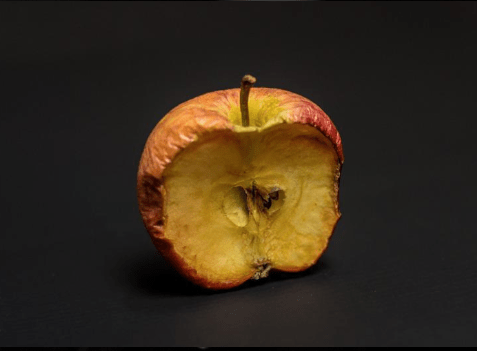A 1976 Apple-1 prototype, believed to have been owned by Steve Jobs and hand-soldered by Steve Wozniack is being auctioned and is expected to fetch around $500,000 (£400,000).

At $400,000 (£328,000) + Already!
The prototype is essentially a broken circuit board with a crack in it but at the time writing this, after 19 bids and with the auction not due to end until 18 August, it has already reached $407,029 (£333,841). An Apple-1 without the same significant back story sold at Bonhams in 2014 for $905,000 (£742,271)!
Used To Secure Apple’s First Big Order
RR Auction®, where the prototype is being sold, says that the prototype, believed to have been made for around $40 (£30) was used “to demonstrate the Apple-1 to Paul Terrell, owner of The Byte Shop in Mountain View, California, one of the first personal computer stores in the world. The demo resulted in Apple Computer’s first big order and changed the course of the company.”
Rare, Early, and Historic
The auction website, which describes the prototype (which spent many years in the ‘Apple Garage’ property) as being “rare, early” and “historic.” The auction website also describes the sources of the value of the broken circuit board as the fact that it is “entwined in the folklore of American business,” and that it is the “perfect embodiment of the symbiosis between Steve Jobs, Steve Wozniak, and Silicon Valley.” The RR Auction® website says this is because “without Wozniak, Jobs had no product” and “without this prototype, and without Paul Terrell, the Apple-1 might have been just another computer kit”.
Early Personal Computers – Now Valuable Historic Artifacts
There is now a lucrative market for what are considered vintage PCs that were part of a revolution that led to technology and tech devices playing an important role in most peoples’ daily lives. Examples of such items that are sought after and their estimated values include:
- Apple II (1977), between five and six million units sold, and it is estimated that one could fetch up to $10,000 (£8,000).
- Apple Lisa (1983). It is believed that there are only 30 to 100 still in existence. One fetched $50,017 back in 2017.
- A Macintosh 128K (1984) could fetch at auction between $1,500 and $2,000 (£1,229 – £1,639).
- A PDP-8, made by Digital Equipment Corporation (DEC) in the 1960s, could fetch an estimated $5,000 to $50,000 (£4,098 to £40,980).
- A Xerox Alto (1973) cost up to $100,000 (£81,974) then, but today could fetch $20,000 (£16,394) and upwards.
- A Commodore’PET 2001’could now fetch $500 (£409.87).
What Does This Mean For Your Business?
Apple has grown from its base in a Los Altos garage in California to becoming a global sensation worth approaching $3 trillion (£2.4 trillion) that is part of the folklore of American business and part of a new technological revolution that has changed everything.
This, and the fact that this particular Apple-1 prototype was part of Apple’s incredible story are what make this modern-day artifact so valuable.
Apple products have always been more than simply electronics to many of their owners, some of whom have a raving-fan attitude towards their devices, and this may also be a factor that boosts the value. This sale and the publicity around it are also reminders that we are now in the third (some say the fourth) industrial revolution and that the early pioneers, from only a few decades ago, have become heroes to some, and their early ‘works’ and artifacts are valued accordingly.
Items such as this circuit board are also a kind of tangible proof of the mythology and stories that have grown up around the original Silicon Valley pioneers as well as providing a point against which to measure the astonishing of growth and progress of technology over such a short space of time.
By Mike Knight
